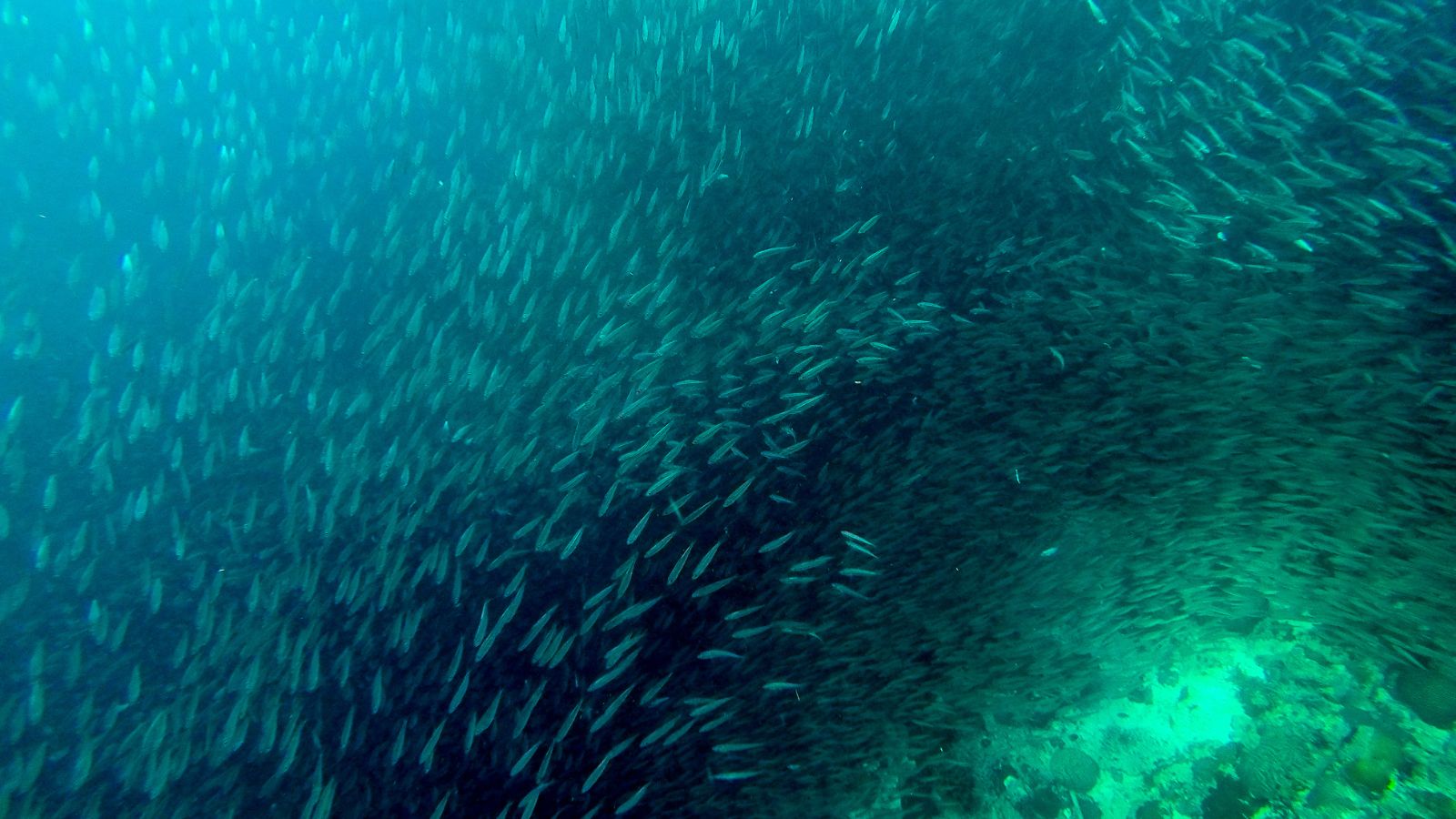
Can You Eat Sardine Bones? A Complete Easy Guide
Photo Credit: Canva Pro
Savory sardines are full of good things for you, but some people wonder if can you eat sardine bones safely? Common questions about eating sardines are answered in this article, including how many sardines you should eat each day, how to cook them, and the health benefits.
It will also be explained whether boneless sardines are healthy and where to find foods that are good for your diet. This article will help you pick the healthiest sardines, whether you like them with or without bones.
Can You Eat Sardine Bones?
Photo Credit: Canva Pro
Some people love sardines because they are easy to cook and full of good nutrients. You may be wondering, can you eat sardine bones safely? Yes, that is the answer. At high temperatures, the bones of sardines are softened during the canning process.
To eat them and digest them easily, this is the case. Most canned sardines are packed in tomato sauce or olive oil, which adds flavor and keeps the nutrients inside.
Why Sardine Bones Are Safe and Edible
While sardines are cooking, the fish bones soften up. People usually don't have trouble choking on sardine bones, but some people do. Canning sardines, anchovies, and other small fish makes the bones edible by cooking them under high pressure.
-
High Temperatures: Bones get softer during the canning process.
-
Safe to Consume: Not many people have problems with eating sardine bones.
-
Good Source of Minerals: Without taking supplements, eating bones gives you calcium and other minerals.
-
Soft Texture: Sardine bones are tasty because they almost melt into the fish.
Health Benefits of Eating Sardine Bones
Many health benefits come from eating sardines with their bones. Foods like sardines contain a lot of calcium, which helps keep bones healthy and strong. Additionally, they give you minerals that are very important and are hard to get from other foods.
-
Boosts Bone Health: Many calcium-rich foods come from eating bones.
-
Improves Mineral Content: Helps the body work by providing zinc, magnesium, and phosphorus.
-
Supports Heart Health: Overall heart health is improved by omega-3 fatty acids.
-
Provides Essential Nutrients: It's full of important vitamins like vitamin D.
Is It Okay to Eat a Whole Can of Sardines?
Photo Credit: Canva Pro
Sardines in a can are a quick and healthy snack that is full of protein, omega-3 fatty acids, and other important nutrients. Most of the time, eating the whole can is safe and even healthy. Small fish like sardines are lower on the food chain than big fish like tuna, so they have less mercury in them.
Nutritional Advantages of a Daily Can
There are many good things about eating a whole can of sardines every day. Sardines are a simple and easy way to improve your nutrition because they have soft bones and a lot of natural oil.
-
High Protein: Great for keeping muscles in good shape and healing them.
-
Rich in Omega 3: These compounds help support heart, brain, and bone health.
-
Calcium Boost: Helps with maintaining strong bones and bone density.
-
Easy Meal Option: It's easy to make and works great as a meal or snack.
Potential Risks to Watch Out For
Even though sardines are good for you, there are a few things you should be aware of if you eat them every day. They're fine for most people, but balance is important with any food.
-
Sodium Content: Sardines in oil or tomato sauce in a can can have a lot of salt in them.
-
Heavy Metals: Large fish have more mercury than sardines, but if you eat too many sardines, other heavy metals could build up in your body.
-
Calories from Oil: Eating sardines in olive oil adds healthy fats and calories to your diet, which can contribute to weight gain if consumed in excess.
-
Food Sensitivities: Some people might be allergic to fish or certain spices.
Do You Need to Debone Fresh Sardines?
Photo Credit: Canva Pro
Fresh sardines taste great, but they often have fish bones still in them. Fresh sardines haven't been through the high-pressure canning process like tinned sardines have, so the bones may be firmer. You can eat sardine bones when the fish is still fresh, but taking the bones out can make the meat smoother and safer to eat.
When and Why You Should Debone Fresh Sardines
How you plan to cook the sardines will determine if they need to be deboned. Taking out the spine and bigger bones can help recipes that need a delicate texture or presentation.
-
Better Texture: Taking out the bones from cooked fresh sardines makes them taste better.
-
Safer Eating: Takes away the chance of choking, especially for kids or people who are sensitive to food.
-
Improved Taste: Some people like the bite better when the bones aren't as big.
-
Recipe Requirements: Grilled or stuffed sardines often benefit from being filleted and deboned for improved texture and presentation.
Step-by-Step Guide to Cleaning and Deboning
With a few simple tools, you can clean fresh sardines at home. It lets you enjoy the taste of fresh fish without having to worry about the bones.
-
Rinse the Fish: To get rid of scales, wash in cold water.
-
Cut and Gut: Use scissors to cut out the head and belly contents.
-
Pull the Spine: When you want to butterfly the sardine, carefully cut off the spine.
-
Trim if Needed: Remove the tail and fins based on how you like your food cooked.
Are Boneless Sardines Healthy?
Photo Credit: Canva Pro
Many individuals inquire as to whether canned sardines without bones are equally healthy as those with bones. Yes, that is the answer. Although they don't have bones, sardines are still very healthy and should be a part of your diet.
In their current form, they are still a great source of protein, vitamin D, selenium, and omega-3 fatty acids. With their soft flesh and great flavor, boneless sardines are great for quick meals. They come in either olive oil or water packaging.
Nutritional Comparison: Bone-In vs. Boneless Sardines
Although boneless sardines don't have as much calcium as sardines with bones, they still have a lot of nutrients that are good for you. Many people who eat fresh or canned sardines benefit from the many vitamins and minerals they contain.
-
Omega-3 Fatty Acids: Support a healthy heart and lower inflammation.
-
Vitamin D: Supports immune function and helps the body absorb calcium.
-
Selenium: Offers cell protection and metabolism boost.
-
Excellent Source of Protein: Builds muscle and fixes damaged body tissue.
Best Scenarios for Choosing Boneless Sardines
Choosing boneless sardines comes down to personal preference and ease of use. Some people like the texture of fish that doesn't have baby bones, especially in salads or pasta dishes.
-
Ease of Eating: It is not necessary to take out bones by hand.
-
Child-Friendly: Excellent for kids who have never tried sardines or anchovies before.
-
Cooking Flexibility: Combine easily with pasta, sandwiches, and other foods.
-
Lower Risk: Makes sensitive eaters less worried about bones.
What is Fully Healthy and What Do They Offer?
Online shoppers on special diets can trust FullyHealthy.com. Foods that are AIP-friendly, gluten-free, and allergen-free are included. For people who want to eat cleanly without having to guess if foods are okay for them, their store has snacks, seasonings, and baking supplies. They focus on providing safe, tasty, and healthy foods for a range of health requirements.
How Fully Healthy Supports Specialized Diets
This website helps people who have to follow strict diets find clean and safe products. Partners with small brands that make good food without any secret ingredients.
-
AIP and Paleo Options: Accepted foods for autoimmune diets.s.
-
Gluten-Free and Allergen-Free: Safe for people with food sensitivities.
-
Trusted Sources: Every product meets strict guidelines for healthy eating.
-
Support for Healthy Living: Helps people easily stick to healthier diets.
Key Products Available for AIP, Paleo, and Gluten-Free Lifestyles
Fully Healthy has a lot of foods that are great for snacks, meals, and extras. Their wide range of products is perfect for anyone who wants to eat healthier and enjoy great taste.
-
Baking Mixes: No-brainer ways to make sweets and treats that are good for you.
-
Seasonings: Extra flavor without any harmful chemicals.
-
Snacks: Clean, quick food options for eating on the go.
-
New Foods: Adding new, innovative products regularly.
Final Thoughts
You can improve your diet by eating sardines. Can you eat sardine bones safely? Yes, you can eat them because they are soft. Canned sardines are very good for you because they contain calcium, omega-3 fatty acids, and health-promoting substances that help the heart. Additionally, fresh sardines taste great and provide important minerals.
For most people who eat fish, sardines in oil, water, or mustard add extra nutrition to their diet. Due to lower mercury levels, sardines are a safer choice than foods like tuna. Putting sardines with vegetables makes a good meal. Including sardines regularly in your diet can improve your intake of essential nutrients like calcium, vitamin D, and omega-3 fatty acids.
FAQs
Can you eat sardine bones in canned sardines and fresh sardines?
Yes, sardine bones are soft and safe in canned sardines and cooked fresh sardines. They offer calcium, oil, and nutritional benefits for heart health.
Are canned sardines safer than tuna for mercury levels?
Yes, canned sardines have much less mercury than tuna and other big fish. Most people can consume sardines daily without fear.
What foods pair well with sardines for a healthy diet?
Great foods include vegetables, mustard, and other foods rich in nutrients. Sardines are a great source of calcium and oil.
Why are sardines a better idea for heart health?
Sardines are packed with oil, omega 3, and calcium. Due to their lower mercury levels and rich omega-3 content, sardines may support heart health more safely compared to larger fish like tuna.
How often should most people consume sardines for best nutritional benefits?
Most people can consume canned sardines or fresh sardines 3–4 times a week for maximum heart health, strong bones, and nutritional benefits.

Leave a comment